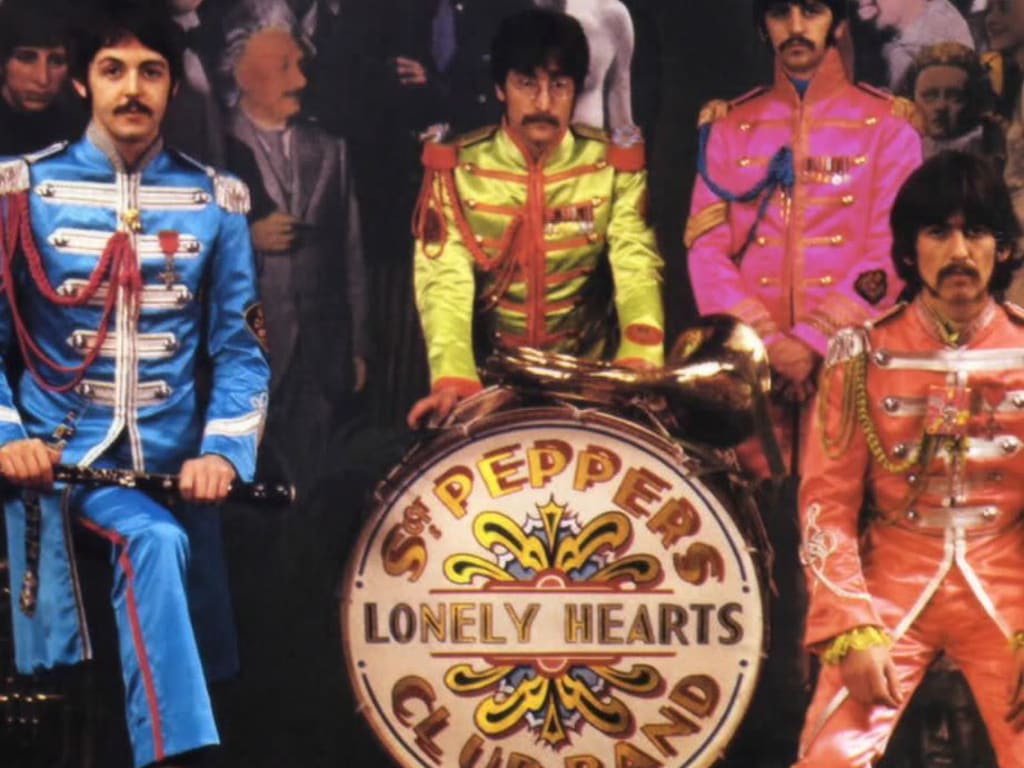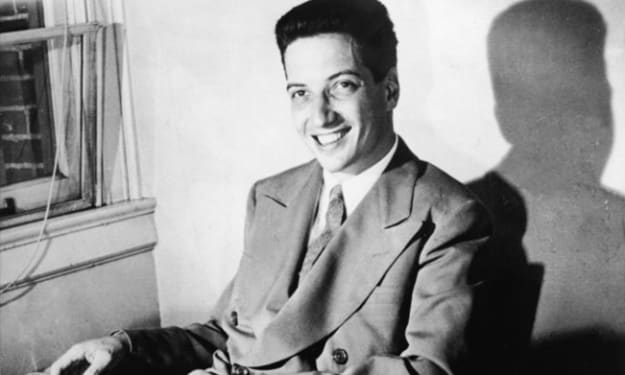It Really Was 50 Years Ago Today!
A Year that Changed the World

The Beatles manager Brian Epstein had just come out of a drug-induced collapse in May 1967, in the Priory Hospital in Roehampton in West London, when he heard the group he had propelled to international stardom’s latest album. A stereo had been set up by his bedside and acetate provided; he closed his eyes, lay back and listened to the magic that filled the room.
When it was released on June 1 in the UK, June 2 in the USA Sergeant Pepper’s Lonely Hearts Club Band personified the zenith of the psychedelic era, raising The Beatles from the status of mere pop-stars to that of true artists. The 12 songs were all different, yet melded together as a cohesive whole, producing what became known as the first Concept Album. Earlier in February they had released "Penny Lane" and "Strawberry Fields Forever", originally intended for the album, but rejected as they did not fit in with the overall feel they were looking for. Previous to the album, on May 19, the first single was released and promptly banned by the BBC. "A Day in the Life" was viewed as a drug song – although actually about the heir Tara Guinness, nee Browne, who had died in December of the previous year in a massive car crash. "Lucy in the Sky with Diamonds" was another casualty, interpreted as a peon to the joys of drug use; it was the initials LSD that caused the trouble, although it was an innocent drawing of Peter Cook’s daughter Lucy by Julian Lennon that inspired the song. Likewise, the song "Fixing a Hole" and Henry the Horse in, "For the Benefit of Mr Kite" was just that a horse, not some oblique reference to the troubles of heroin usage.
It was also in many ways the end of the true heart of The Beatles? The last time they fully coalesced as a group, performing and gelling together in the studio and although McCartney wrote half the tracks, it was mostly alone, now rarely collaborating with Lennon, a gap that would only widen in the albums left to them. Above all, it was probably the musical genius of George Martin that cemented the musician’s thoughts together as a listenable experience. His ideas, use of instruments, sound effects, musical textures and the best technology of the day, produced even in the segues between tracks something absolutely unique and new.
Brian Epstein, now out of hospital convened a party at his flat at Chapel Street in the West End on May 18 and launched Sgt Pepper onto those reporters and friends who had gathered in homage to it. Coincidentally, it was at the party that Paul McCartney was introduced to Linda Eastman, photographer and daughter of a New York Music-Biz lawyer, whose relationship would flourish long after the champagne glasses were emptied.
Sadly the new album was the last with Epstein, turning increasingly to drugs, both prescribe and experimental, he was found dead at the age of 32 from a lethal ingestion of both. A shy, complex man, he had not come to terms with his sexuality and after a number of failed affairs, his increasing use of pills became a millstone around his, eventually killing him. The Frankenstein creature he helped to create, The Beatles, would stagger on for another 4 years, before leaving their legacy to history.
It is in no doubt that 1967 was a pivotal year, not only in the ‘topper most of the popper most’ firmament of The Beatles but in the century as a whole. A year that changed the way we saw the world and the world saw us. London became the ‘swinging city,’ home to the fashions of groovy fashions of Carnaby Street and the widespread usage of mind-altering substances. It was the year that saw the birth of POP broadcasting with the launch of BBC1 making the Offshore Pirate Radio Stations redundant. The Rolling Stones were arrested, then jailed for the possession and usage of drugs, and the ‘establishment’ was shocked when it was the ‘establishment’ themselves who came to their rescue, with a front editorial, "Who Breaks a Butterfly on a Wheel", in their defence. We legalised homosexuality between consenting adults and brought in the Abortion Act, breaking the taboo of unwanted pregnancies.
Back in 2017 land, it is almost an irony that this coming weekend may see Sergeant Pepper, in the new re-mixed form, back at the top of the charts in the UK. If we take it from a 1967 viewpoint it is like re-releasing a recording of Enrico Caruso from 1917 and watching it take wings and fly high again, improbable yes, but not impossible?
About the Creator
Bob Robertson
A professional journalist, numerous websites and blogs/4 novellas available through Amazon Paperback and book on aspects of American History/Please see thenovelideaandassociates.net for further details...






Comments
There are no comments for this story
Be the first to respond and start the conversation.